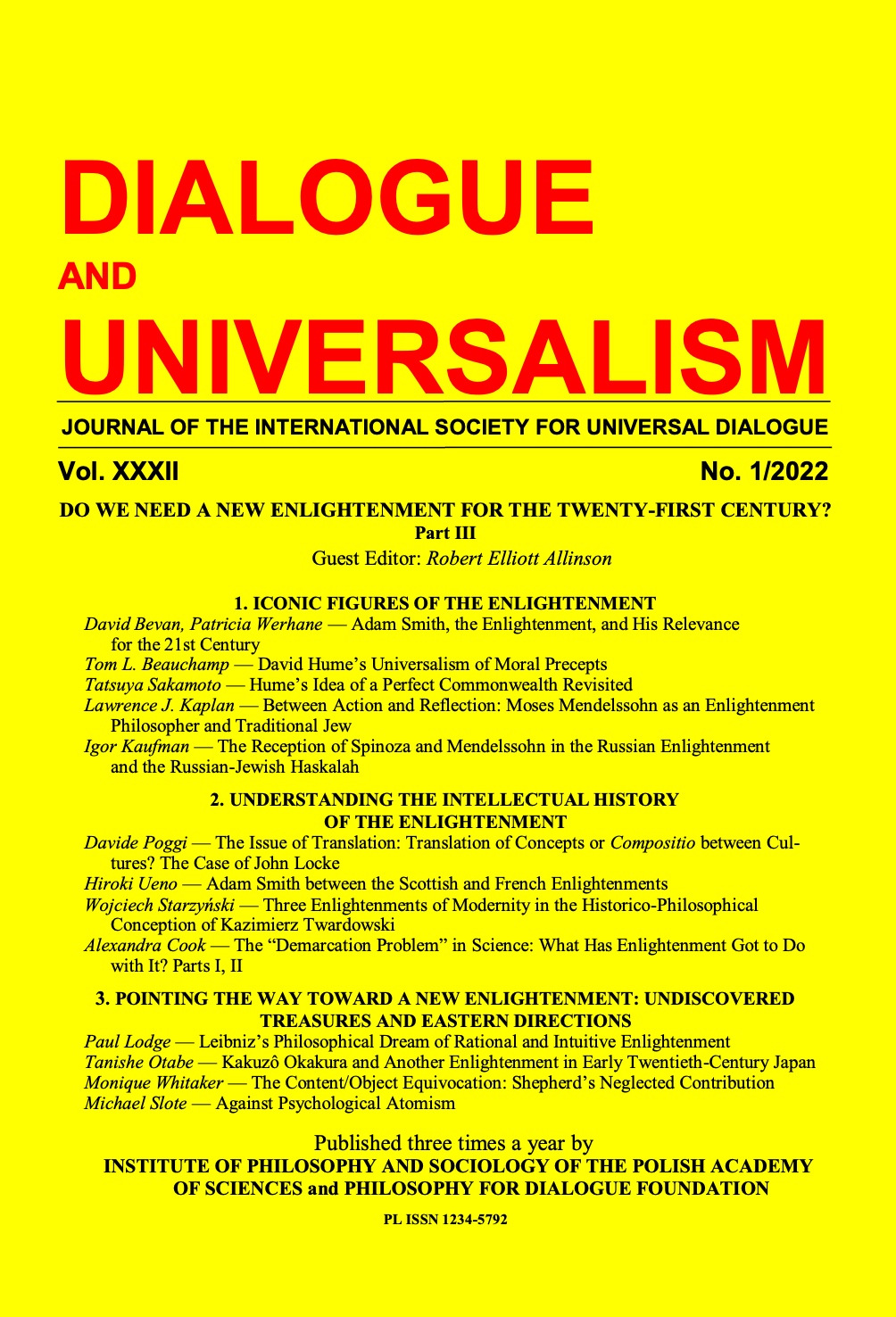THE YORUBA CONCEPT OF THE OKUN OMO IYA AS A CRITIQUE OF MARTIN BUBER’S “I-THOU” AND THE QUEST FOR ENVIRONMENTAL SUSTAINABILITY
THE YORUBA CONCEPT OF THE OKUN OMO IYA AS A CRITIQUE OF MARTIN BUBER’S “I-THOU” AND THE QUEST FOR ENVIRONMENTAL SUSTAINABILITY
Author(s): Oluwatobi David Esan, Solomon Kolawole AweSubject(s): Philosophy, History of Philosophy, Social Philosophy
Published by: Instytut Filozofii i Socjologii Polskiej Akademii Nauk i Fundacja Filozofia na Rzecz Dialogu
Summary/Abstract: This paper attempts to critique the existential philosophy of Martin Buber’s theory of the “I-Thou” using the Yoruba concept of okun omo iya. The need for the realization of a sustainable environment has been a point of focus for researchers, scholars, and government policy makers. The reason for this realization is not far-fetched. According to a record from World Health Organisation (WHO), one-quarter of all deaths worldwide are attributed to over-exploitation and reckless usage of the environment. This undoubtedly has caused several human-induced disasters such as floods. The reckless usage and abuse of the environment is predicated on the domineering tendency of humans towards the environment. Martin Buber, in his existentialist philosophy, argues that humans should treat their relations as “I-Thou” (as subjects) and not as “I-It” (as objects). It follows that humans must be considerate in relating with each other such that fellow humans should not be treated as a means to an end, rather as ends in themselves. Simply put, fellow humans should not be seen as objects that others can either control, dominate, or subdue. However, Buber’s existentialist philosophy is human-centered, as it excludes the non-human entities and as well, failed to explain the relationship that should exist between humans and non-human entities. Hence, the Yoruba concept of okun omo iya will be used as a paradigm to remodel and re-configure the existentialist philosophy of Buber in a way that is environmentally inclusive.
Journal: Dialogue and Universalism
- Issue Year: 2023
- Issue No: 2
- Page Range: 233-253
- Page Count: 21
- Language: English

